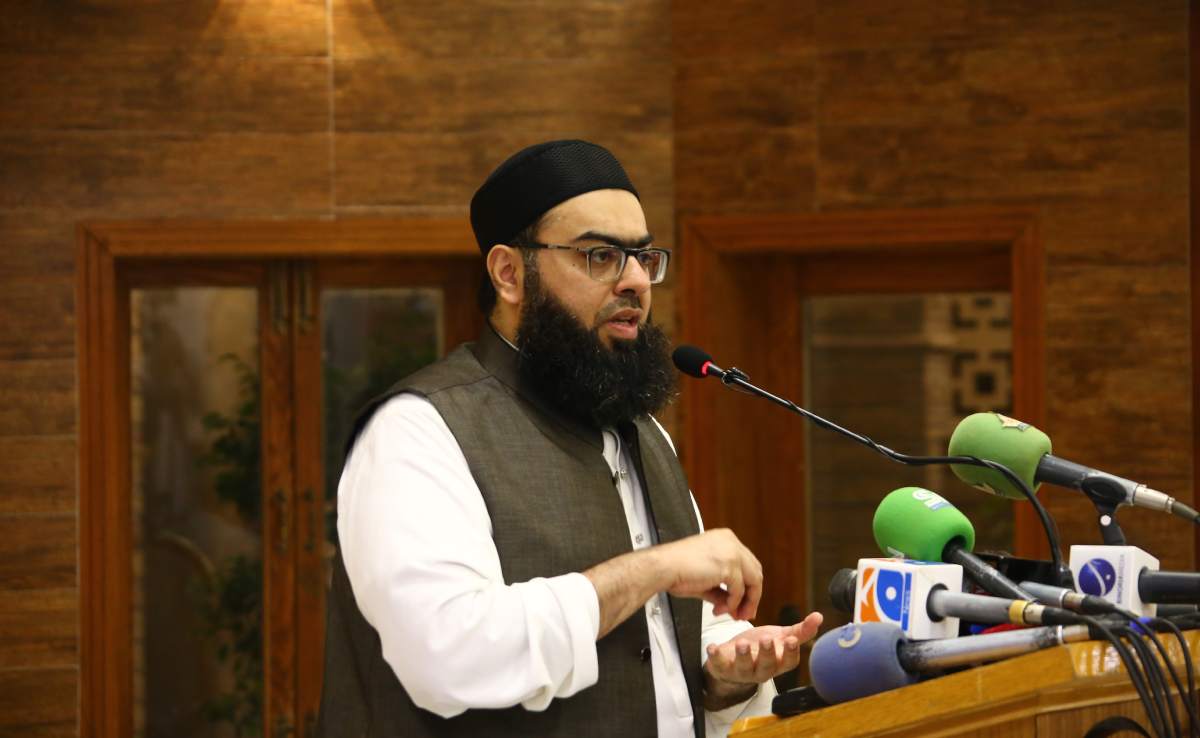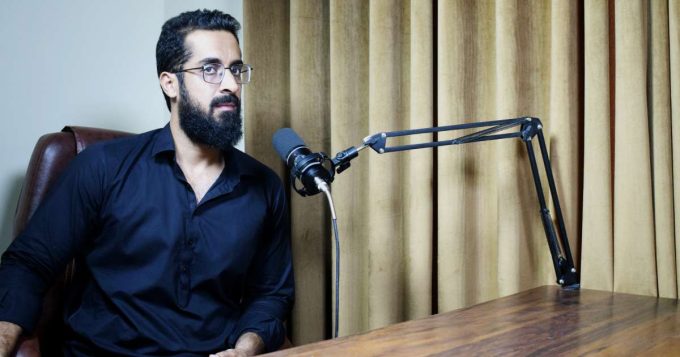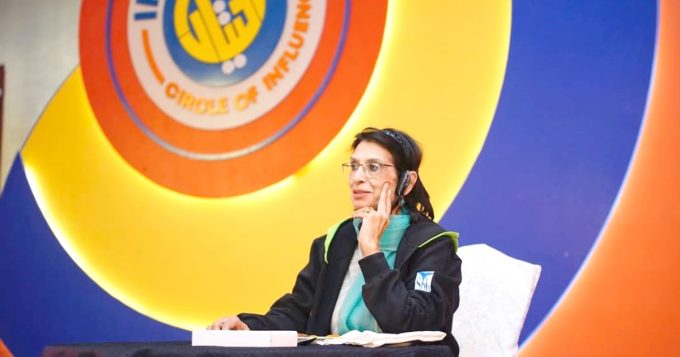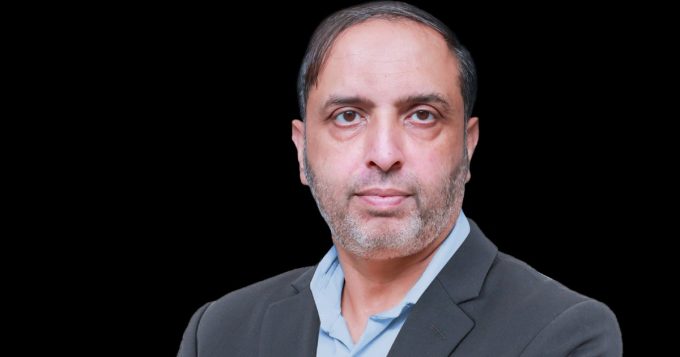Founded in 1979, Karachi’s Jamia Binoria Aalamia, led by President Dr. Mufti Noman Naeem, is breaking stereotypes by blending religious scholarship with modern disciplines, preparing students to lead in prayer halls and boardrooms.
Synergyzer: Jamia Binoria is both a religious seminary and a university. How do you merge the two?
Dr. Mufti Noman Naeem: Jamia Binoria Aalamia has been committed to integrating modern skills alongside religious education. As early as the 1990s, we introduced computer courses and surveillance systems, an unusual step for madrasas at the time. With time, we expanded into digital media, graphic design, web development, editing, and social media management.
It is more than just a merger; it is a complete redefinition of “religious education” for the 21st century. We believe that religious depth and modern breadth are not opposites; they complement each other. It is not two systems running parallel; it is a unified, intellectually cohesive model that prepares students for religious and worldly leadership alike.
Before designing our curriculum, we studied the models of renowned Islamic universities such as Umm al-Qura in Saudi Arabia, Al-Azhar in Egypt, International Islamic University Malaysia, and Al-Qarawiyyin in Morocco, institutions where both streams of knowledge coexist.
Our students study Quran, Hadith, Fiqh, and Arabic literature alongside subjects like maths, science, English, social studies, robotics, and AI. Mornings are reserved for religious studies, afternoons for secular education. With 60% focus on character-building and 40% on academics and skills, they memorise the Quran while preparing for Matric or O-Levels. Graduates leave as certified Islamic scholars, often completing matriculation, intermediate, and even bachelor’s-level education, many excelling in provincial exams.
Read More: Interview with Shireen Naqvi
Synergyzer: Why do you think madrasa education in Pakistan is often perceived as intellectually inferior or less socially valuable than elite private schooling?
Dr. Mufti Noman Naeem: This perception has a colonial backdrop. During colonial rule, education was deliberately stratified; English education became associated with power and privilege, while religious education was economically marginalised and left accessible mostly to underprivileged segments.
Over time, this fed into a deep-rooted bias that equates madrasa education with intellectual inferiority or social regression, a view still reinforced by media narratives today.
Our founder, Mufti Muhammad Naeem (RA), worked tirelessly to challenge these biases by opening Jamia Binoria’s doors to people from all walks of life: government officials, media professionals, and celebrities, to witness the academic rigour and spiritual depth of our curriculum.
This outreach even led to positive international coverage from platforms like BBC, CNN, and Al Jazeera. Moving forward, we must continue this work by modernising teaching methods, reforming curricula, and ensuring transparency, so religious education is seen as socially respected, academically credible, and economically viable.

Synergyzer: What career paths do Jamia Binoria graduates have and their role in today’s world?
Dr. Mufti Noman Naeem: Graduates of Jamia Binoria are serving in over 10 countries, contributing to religious, academic, social, and humanitarian roles, and positively representing Pakistan on global platforms. Traditionally seen as limited to leading prayers or teaching, religious education is now being redefined.
Our research has identified 107 professional fields where madrasa graduates can contribute, including diplomacy, Islamic finance, media, translation, NGO work, halal food science, Shariah advisory, and entrepreneurship. Many of our alumni now work internationally as advisors, lawyers, journalists, researchers, and scholars.
My vision is to produce graduates who are not just job-seekers, but job-creators; self-reliant, innovative, and equipped to lead across diverse sectors worldwide.
Synergyzer: How can Madrasas contribute to critical thinking and civic responsibility alongside religious education?
Dr. Mufti Noman Naeem: If religious institutions focus solely on ritual worship and rote learning, they fail to meet the intellectual and civic needs of youth. We believe madrasas should serve not as sectarian hubs but as centres of thought and consciousness.
At Jamia Binoria, we cultivate an environment that encourages students to ask questions, debate, and explore diverse perspectives. We conduct open forums, emphasise research-based learning, and train students to observe and analyse societal, national, and global issues.

Synergyzer: Is madrasa a choice or the only option for less privileged families?
Dr. Mufti Noman Naeem: This was a stereotype in the earlier times. Madrasas do fill the gap by providing quality education, food, lodging and skill training entirely free, thanks to our donors. We aim to make education a ladder out of poverty, equipping students with practical and academic tools for self-reliance.
Today, it is not just the underprivileged. Students from affluent families also attend madrasas. For example, children of African royalty and political elites have studied here.
It is true that the underprivileged form a large portion. The reason is systemic: the state lacks mechanisms to support education for the poor.
Unfortunately, despite their immense contribution, madrasas do not receive the national recognition they truly deserve.
Synergyzer: What does inclusion and empowerment look like for women in your institution when it comes to access and opportunity?
Dr. Mufti Noman Naeem: Women are the foundation of society, yet they are often marginalised or reduced to homemakers. Islam, however, offers many examples of powerful female leaders, like Aisha (RA), whom even senior companions of the Prophet (PBUH) consulted after his death.
Female inclusion is not just about access, but also about leadership. Although many institutions still limit women’s education to basic Quranic studies. We broke that trend by offering comprehensive academic pathways for women, research programmes, Shariah advisory services, and teaching opportunities. This is among the few institutions where women graduate as Muftis (Islamic jurists).
We aim to produce empowered female scholars equipped to teach, lead, and represent Islamic knowledge nationally. Our students participate in online Shariah advisory, research, public speaking, and leadership programmes in Turkey and Germany.
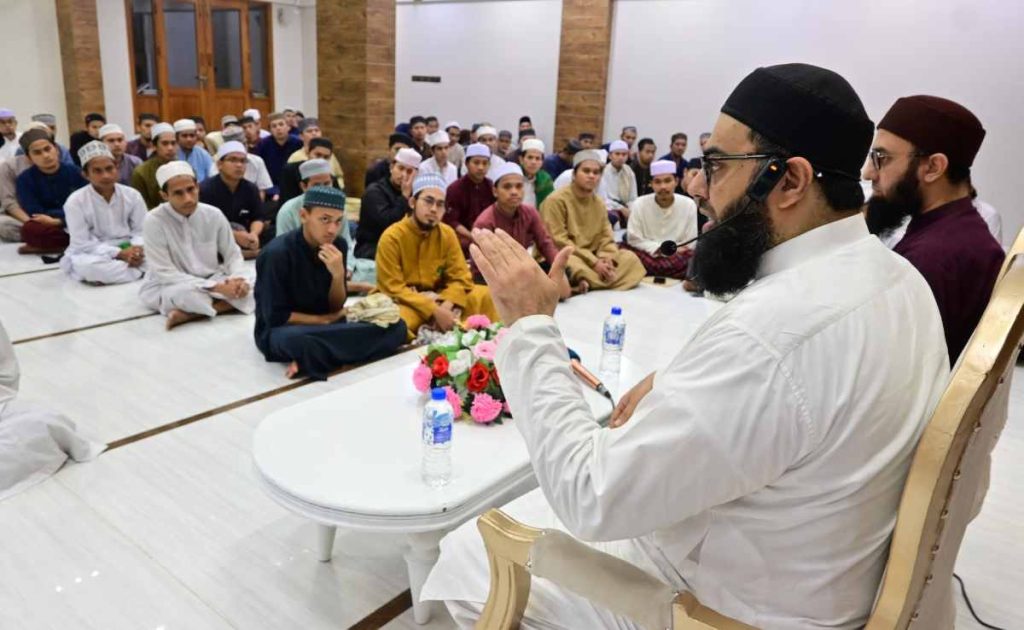
Synergyzer: How do you design a curriculum that accommodates students from over 50 countries?
Dr. Mufti Noman Naeem: We host students from 74 countries, each bringing unique cultures and traditions. To honour this diversity, we host cultural events and support in multiple languages. Our Shariah-based curriculum is flexible across linguistic and cultural contexts, supported by multilingual instructors, personalised mentorship, and specialised accommodation. I meet with students regularly to hear their concerns. Our aim is simple: no one should feel like a foreigner here. This is their institution, their second home.
Synergyzer: What is the academic and international status of degrees from Jamia Binoria Aalamia?
Dr. Mufti Noman Naeem: Our degrees are recognised by Pakistan’s HEC and affiliated with the Federal Urdu University. We have also partnered with international institutions like IIUM, USIM, and USM in Malaysia, universities in Germany, the Islamic University of Kyrgyzstan, and institutions in the US. These affiliations ensure our graduates can pursue MPhil and PhD programmes globally.

